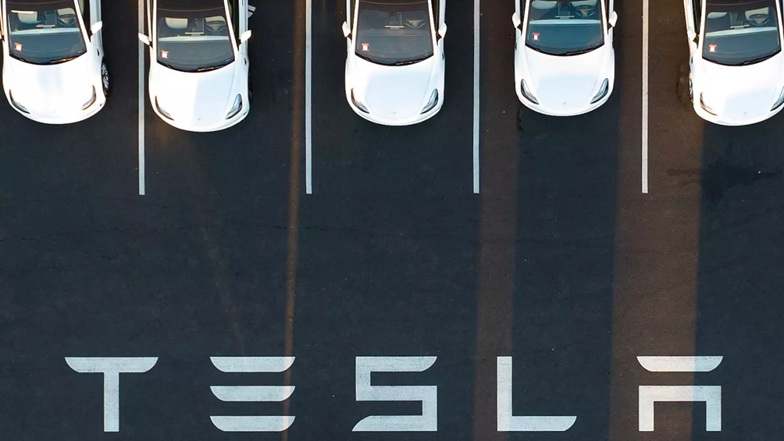In a historic legal blow to Tesla, a Florida jury has found the electric carmaker partially liable in a fatal crash involving its Autopilot system, ordering the company to pay up to $243 million to the victims’ families. The verdict, delivered after a nearly month-long trial, marks the first time Tesla has been held responsible in court for a wrongful death linked to its advanced driver assistance systems (ADAS).

The case centered on a 2019 crash in Key Largo, Florida. George McGee, driving his Tesla Model S with Autopilot engaged, dropped his phone and looked down to retrieve it. In those crucial seconds, the car sped past a stop sign at a T intersection and slammed into a parked Chevrolet Tahoe. Standing next to the Tahoe were 22-year-old Naibel Benavides Leon and her boyfriend, Dillon Angulo. Benavides was killed instantly; Angulo suffered life-altering injuries.
Police charged McGee with reckless driving. While McGee settled with the victims’ families, Tesla refused to do so, leading to this high-profile trial.
Jury’s Verdict: Shared Responsibility
After weeks of testimony, the jury found Tesla 33% liable for the crash, awarding $129 million in compensatory damages and $200 million in punitive damages. Due to the partial liability, Tesla is responsible for 33% of the compensatory damages and the capped punitive damages, totaling $243 million.
The plaintiffs had sought $345 million, but the final award is still a significant setback for Tesla, which has typically succeeded in deflecting blame onto drivers in similar cases.
Tesla’s defense, as in previous lawsuits, was to argue that the driver was solely responsible. The company pointed to its warnings that Autopilot is not a self-driving system and that drivers must remain attentive at all times. Tesla’s lawyer stated, “No car in 2019, and none today, would have prevented this crash. This was never about Autopilot; it was a fiction concocted by plaintiffs’ lawyers blaming the car when the driver… admitted and accepted responsibility.”
But this time, the jury was swayed by the plaintiffs’ argument that Tesla’s marketing and public statements—especially those by CEO Elon Musk—misled customers into believing Autopilot was more capable than it actually was. The driver, McGee, testified that he believed Autopilot would “assist me should I have a failure or should I miss something, should I make a mistake — that the car would be able to help me. And in that case, I do feel like it failed me.”
Tesla Autopilot Crash Outcomes (2016–2024)
| Year | Crashes | Fatalities |
|---|---|---|
| 2016 | 2 | 1 |
| 2017 | 3 | 1 |
| 2018 | 4 | 2 |
| 2019 | 5 | 3 |
| 2020 | 6 | 3 |
| 2021 | 7 | 4 |
| 2022 | 8 | 2 |
| 2023 | 5 | 2 |
| 2024 | 4 | 1 |
Plaintiffs’ attorney Brett Schreiber argued, “Tesla designed Autopilot only for controlled access highways yet deliberately chose not to restrict drivers from using it elsewhere, alongside Elon Musk telling the world Autopilot drove better than humans. Tesla’s lies turned our roads into test tracks for their fundamentally flawed technology, putting everyday Americans like Naibel Benavides and Dillon Angulo in harm’s way.”
| Type of Damages | Requested ($M) | Awarded ($M) | Tesla’s Share ($M) |
|---|---|---|---|
| Compensatory | 129 | 129 | 42.57 (33%) |
| Punitive | 200 | 200 | 200 |
| Total | 329 | 329 | 242.57 |
This verdict is a watershed moment for Tesla and the broader auto industry. It is the first wrongful death case involving Tesla’s ADAS to reach trial. In recent months, Tesla quietly settled two similar cases out of court, but this time, the company chose to fight—and lost.
Legal experts say the outcome could open the floodgates for more lawsuits from victims of crashes involving Autopilot or Full Self-Driving (FSD). The verdict also strengthens ongoing regulatory scrutiny, including a high-profile case by the California DMV, which accuses Tesla of misleading consumers about the capabilities of its driver-assist systems.
Tesla’s Autopilot and FSD systems have been under increasing scrutiny from regulators, safety advocates, and the public. While Tesla claims its technology makes driving safer, critics argue that the company’s marketing blurs the line between driver assistance and full autonomy, leading to overconfidence and misuse.
According to the National Highway Traffic Safety Administration (NHTSA), there have been at least 40 U.S. crashes involving Tesla vehicles with Autopilot engaged since 2016, resulting in 19 deaths. Tesla’s own safety reports claim that cars using Autopilot are involved in fewer accidents per mile than the national average, but these figures are contested due to differences in driving conditions and reporting standards.
Tesla has vowed to appeal the verdict, calling it “wrong” and warning that it could set back automotive safety and innovation. The company maintains that drivers are ultimately responsible for their vehicles, regardless of automation.
However, the jury’s decision signals a shift in how courts may view the responsibilities of automakers in the era of advanced driver assistance. If Tesla’s marketing is found to have misled consumers, the company—and potentially others in the industry—could face mounting legal and regulatory challenges.
The Florida verdict is more than just a legal defeat for Tesla; it is a wake-up call for the entire auto industry. As carmakers race to deploy increasingly sophisticated driver-assist systems, the line between human and machine responsibility is blurring. This case sets a precedent: companies cannot market their technology as near-autonomous while disclaiming responsibility when things go wrong.
For Tesla, the road ahead is likely to be filled with more lawsuits, regulatory battles, and a renewed focus on how it communicates the capabilities—and limitations—of its technology. For the victims’ families, the verdict brings a measure of justice, but for the industry, it marks the beginning of a new era of accountability.
Related Post
